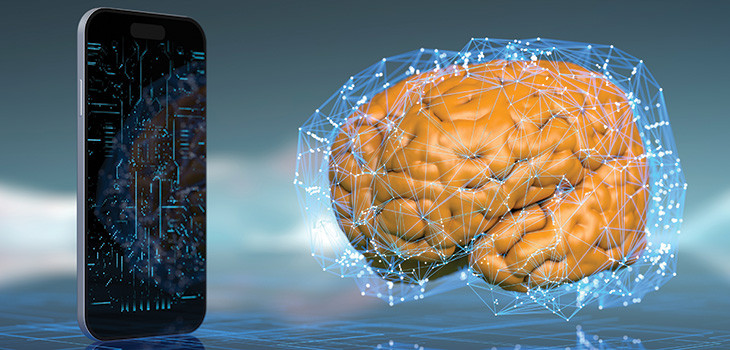*/

In an era where the surge of artificial intelligence (AI) captures global attention, an equally important but less discussed advancement is making waves – the intersection of neurotechnology and law. This pivotal juncture in human innovation has prompted the establishment of the Institute of Neurotechnology & Law, spearheaded by Harry Lambert, a barrister with a unique blend of expertise in product liability, privacy, and medical law.
In recent years neurotechnology has made great strides, and we now live in a world where brain to brain communication, memory scanning and transcription of thoughts to text (to name but a few) are all possible. As neurotechnology swiftly evolves, its integration into everyday life will have profound implications on privacy, ethics and personal autonomy. Suddenly we need to protect a whole new raft of rights that we never imagined needed protection; what the ethicist Rafael Yuste has called ‘neurorights’.
The foundation of the Institute comes at a critical time. It is no exaggeration to say that recent advances in neurotechnology mark a crucial moment; it is imperative that we engage in balanced and informed debates about neurorights.
The Institute of Neurotechnology & Law aims to ensure that as these technologies develop, they do so in a manner that aligns with the best interests of humanity. The core mission is to foster discussions that will guide the responsible development of neurotechnological innovations. By bringing together legal experts, technologists, bioethicists and policymakers, the Institute seeks to build a robust framework for ethical governance and legislation in this dynamic arena.
It’s common to hear debates surrounding AI, but the fascinating topic of neurotechnology and its legal implications remains largely in the shadows. The Institute of Neurotechnology and Law is set to change that, ensuring that this area receives the attention and scrutiny it deserves. Find out more at www.neurotechlaw.com

In an era where the surge of artificial intelligence (AI) captures global attention, an equally important but less discussed advancement is making waves – the intersection of neurotechnology and law. This pivotal juncture in human innovation has prompted the establishment of the Institute of Neurotechnology & Law, spearheaded by Harry Lambert, a barrister with a unique blend of expertise in product liability, privacy, and medical law.
In recent years neurotechnology has made great strides, and we now live in a world where brain to brain communication, memory scanning and transcription of thoughts to text (to name but a few) are all possible. As neurotechnology swiftly evolves, its integration into everyday life will have profound implications on privacy, ethics and personal autonomy. Suddenly we need to protect a whole new raft of rights that we never imagined needed protection; what the ethicist Rafael Yuste has called ‘neurorights’.
The foundation of the Institute comes at a critical time. It is no exaggeration to say that recent advances in neurotechnology mark a crucial moment; it is imperative that we engage in balanced and informed debates about neurorights.
The Institute of Neurotechnology & Law aims to ensure that as these technologies develop, they do so in a manner that aligns with the best interests of humanity. The core mission is to foster discussions that will guide the responsible development of neurotechnological innovations. By bringing together legal experts, technologists, bioethicists and policymakers, the Institute seeks to build a robust framework for ethical governance and legislation in this dynamic arena.
It’s common to hear debates surrounding AI, but the fascinating topic of neurotechnology and its legal implications remains largely in the shadows. The Institute of Neurotechnology and Law is set to change that, ensuring that this area receives the attention and scrutiny it deserves. Find out more at www.neurotechlaw.com


The Chair of the Bar sets out how the new government can restore the justice system
In the first of a new series, Louise Crush of Westgate Wealth considers the fundamental need for financial protection
Unlocking your aged debt to fund your tax in one easy step. By Philip N Bristow
Possibly, but many barristers are glad he did…
Mental health charity Mind BWW has received a £500 donation from drug, alcohol and DNA testing laboratory, AlphaBiolabs as part of its Giving Back campaign
The Institute of Neurotechnology & Law is thrilled to announce its inaugural essay competition
How to navigate open source evidence in an era of deepfakes. By Professor Yvonne McDermott Rees and Professor Alexa Koenig
Brie Stevens-Hoare KC and Lyndsey de Mestre KC take a look at the difficulties women encounter during the menopause, and offer some practical tips for individuals and chambers to make things easier
Sir Geoffrey Vos, Master of the Rolls and Head of Civil Justice since January 2021, is well known for his passion for access to justice and all things digital. Perhaps less widely known is the driven personality and wanderlust that lies behind this, as Anthony Inglese CB discovers
The Chair of the Bar sets out how the new government can restore the justice system
No-one should have to live in sub-standard accommodation, says Antony Hodari Solicitors. We are tackling the problem of bad housing with a two-pronged approach and act on behalf of tenants in both the civil and criminal courts